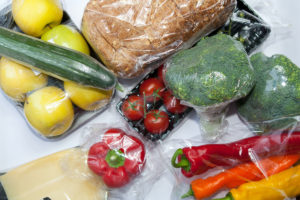Plastics bans, environmental monitoring get short shrift during pandemic
In mid-January the British Columbia government announced it was looking at a wide ban on single-use plastic grocery bags to put an end to a piecemeal, city-by-city approach to the problem of plastic pollution.
Ten weeks later, the province’s chief public health officer, Dr. Bonnie Henry, issued guidance saying the exact opposite. Stores were to provide clean carry-out bags, she told retailers on March 30, as the province was closing in on 1,000 positive cases of COVID-19.
Fear of contamination from reused packaging and the need to operate with reduced staff and with fewer interactions between people, prompted retailers to bar reusable packaging, from bags to coffee cups. Restaurants were forced to go to a take-out only model, pushing the need for plastic and Styrofoam containers through the roof.
And as the use of plastic containers went up, some cities were forced to cut back, or even cancel outright, municipal recycling programs.
Last week Calgary suspended blue-bin operations entirely because of a COVID-19 outbreak in the city’s recycling plant. Edmonton has said about one-quarter of what it collects from blue bins is going to the landfill now because it don’t have the staff to handle all the material. In eastern Ontario, Quinte Waste Solutions, which provides recycling to nine municipalities, suspended collection of most hazardous and electronic waste for proper disposal. In Nova Scotia, several recycling depots were closed.
The plastics industry has seen an uptick in demand in the midst of the virus, said Bob Masterson, the president of the Chemistry Industry Association of Canada.
“What I would say has changed is people, as a result of COVID, have a much better appreciation of the benefit of plastic as a sanitary material for the food industry,” he said.
Sarah King, head of the oceans and plastics program at Greenpeace Canada, disputes that plastics are safer as a means to protect consumers. She said plastics have a place in the medical world but studies have shown the virus actually lives longer on plastic than any other material.
A cloth bag that is washed regularly is less likely to be contaminated than a plastic one, she said.
“There is a lot of misinformation about plastics as a healthy alternative,” said King.



